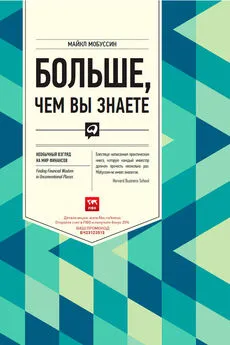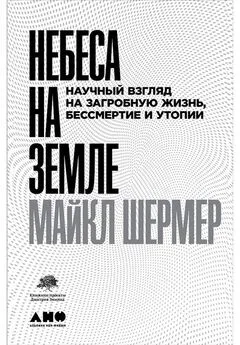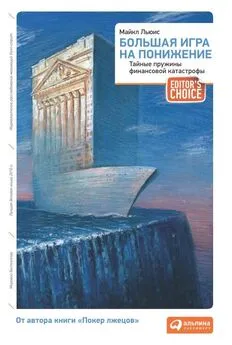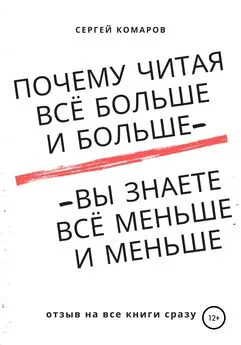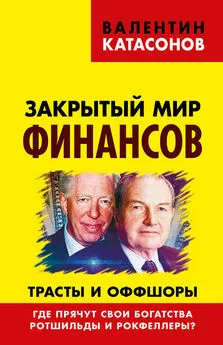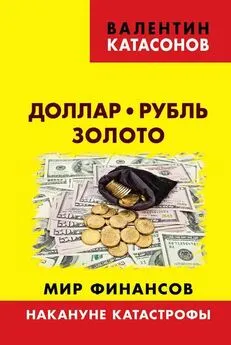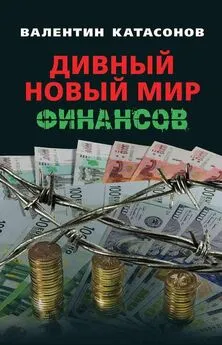Майкл Мобуссин - Больше, чем вы знаете. Необычный взгляд на мир финансов
- Название:Больше, чем вы знаете. Необычный взгляд на мир финансов
- Автор:
- Жанр:
- Издательство:Array Литагент «Альпина»
- Год:2014
- Город:Москва
- ISBN:978-5-9614-3247-3
- Рейтинг:
- Избранное:Добавить в избранное
-
Отзывы:
-
Ваша оценка:
Майкл Мобуссин - Больше, чем вы знаете. Необычный взгляд на мир финансов краткое содержание
Больше, чем вы знаете. Необычный взгляд на мир финансов - читать онлайн бесплатно ознакомительный отрывок
Интервал:
Закладка:
Roll, Richard. “A Critique of the Asset Pricing Theory’s Tests: Part 1: On Past and Potential Testability of the Theory.” Journal of Financial Economics 4 (1977): 129–76.
____. “Rational Infinitely-Lived Asset Prices Must be Non-Stationary.” Working Paper, November 1, 2000.
Rosenzweig, Phil, The Halo Effect:… and Eight Other Business Delusions that Deceive Managers. New York: Free Press, 2006.
Rottenstreich, Yuval, and Christopher K. Hsee. “Money, Kisses, and Electric Shocks.” Psychological Science 12, no. 3 (May 2001), 185–90.
Rubin, Robert. Commencement Day Address. Harvard University, 7 June 2001. http://www.commencement.harvard.edu/2001/rubin.html.
____. Commencement Address. University of Pennsylvania, 1999. http://www.upenn.edu/almanac/v45/n33/speeches99.html.
Rubin, Robert E., and Jacob Weisberg. In an Uncertain World. New York: Random House, 2003.
Russo, J. Edward, and Paul J. H. Schoemaker. Winning Decisions: Getting It Right the First Time. New York: Doubleday, 2002.
Samuelson, Paul A. “Risk and Uncertainty: A Fallacy of Large Numbers.” Scientia 98 (1963): 108–13.
Sapolsky, Robert M. A Primate’s Memoir. New York: Scribner, 2001.
____. Why Zebras Don’t Get Ulcers: An Updated Guide to Stress, Stress-Related Disease, and Coping. New York: W. H. Freeman and Company, 1994.
Schlender, Brent. “The Bill and Warren Show.” Fortune, July 20, 1998, 48–64.
Schwartz, Peter. Inevitable Surprises: Thinking Ahead in a Time of Turbulence. New York: Gotham Books, 2003.
Seeley, Thomas D. Biography. http://www.nbb.cornell.edu/neurobio/
department/Faculty/seeley/seeley.html.
____. The Wisdom of the Hive: The Social Physiology of Honey Bee Colonies. Cambridge, Mass.: Harvard University Press, 1995.
Seuss, Dr. I Can Read with My Eyes Shut! New York: Random House, 1978.
Shefrin, Hersh, Beyond Greed and Fear: Understanding Behavioral Finance and the Psychology of Investing. Boston: Harvard Business School Press, 2000.
Shiller, Robert. Web site. http://www.econ.yale.edu/~shiller/.
Shleifer, Andrei. Inefficient Markets: An Introduction to Behavioral Finance. Oxford: Oxford University Press, 2000.
Siegel, Jeremy J. Stocks for the Long Run. 3rd ed. New York: McGraw Hill, 2002.
Sklansky, David. The Theory of Poker. 4th ed. Henderson, Nev.: Two Plus Two Publishing, 1999.
Slovic, Paul, Melissa L. Finucane, Ellen Peters, and Donald G. MacGregor. “Risk as Analysis and Risk as Feelings.” Доклад был представлен на ежегодном собрании Общества анализа риска, Новый Орлеан, Луизиана, 10 декабря 2002 г. http://www.decisionresearch.org/pdf/dr502.pdf.
Smith, Vernon L. “An Experimental Study of Competitive Market Behavior.” Journal of Political Economy 70, no. 3 (June 1962): 111–37.
Social Security. “FAQ.” http://www.socialsecurity.gov/history/hfaq.html.
Sontag, Sherry, and Christopher Drew. Blind Man’s Bluff: The Untold Story of American Submarine Espionage. New York: Perseus Books, 1998.
Sornette, Didier. Biography. http://www.ess.ucla.edu/faculty/sornette.
____. Why Stock Markets Crash: Critical Events in Complex Financial Systems. Princeton, N. J.: Princeton University Press, 2003.
Soros, George. Soros on Soros. New York: Wiley, 1995.
Spanier, David. Easy Money: Inside the Gambler’s Mind. New York: Penguin, 1987.
Spence, John. “Bogle Calls for a Federation of Long-Term Investors.” Index Funds, Inc. http://www.indexfunds.com/articles/
20020221_boglespeech_com_gen_JS.htm.
Stalin, Josef. Speech. February 9, 1946. http://www.marx2mao.com/Stalin/SS46.html.
Stanley, Eugene, et al. “Scaling Behavior in Economics: I. Empirical Results for Company Growth.” Journal de Physique (April 1997): 621–33.
Steinhardt, Michael. No Bull: My Life In and Out of Markets. New York: John Wiley & Sons, 2001. “Stern Stewart EVA Roundtable.” Journal of Applied Corporate Finance 7, no. 2 (Summer 1994): 46–70.
Stewart, Thomas A. “How to Think with Your Gut.” Business 2.0, November 2002.
Strogatz, Steven. Sync: The Emerging Science of Spontaneous Order. New York: Hyperion Books, 2003.
Surowiecki, James. “Damn the Slam PAM Plan!” Slate, July 30, 2003.
____. “Decisions, Decisions.” New Yorker, March 28, 2003. http://www.newyorker.com/archive/2003/
03/24/030324ta_talk_surowiecki.
____. The Wisdom of Crowds: Why the Many Are Smarter Than the Few and How Collective Wisdom Shapes Business, Economies, Societies and Nations. New York: Random House, 2004.
Taleb, Nassim Nicholas. Fooled By Randomness: The Hidden Role of Chance in Markets and in Life. New York: Texere, 2001.
____. The Black Swan: The Impact of the Highly Improbable. New York: Random House, 2007.
Tallis, Frank. Hidden Minds: A History of the Unconscious. New York: Arcade Publishing, 2002.
Taylor, Richard P. “Order in Pollock’s Chaos.” Scientific American (December 2002). http://materialscience.uoregon.edu/
taylor/art/scientificamerican.pdf.
Taylor, Richard P., B. Spehar, C. W. G. Clifford, and B. R. Newell, “The Visual Complexity of Pollock’s Dripped Fractals,” Proceedings of the International Conference of Complex Systems, 2002, http://materialscience.uoregon.edu/
taylor/art/TaylorlCCS2002.pdf.
Tetlock, Philip E. Expert Political Judgment: How Good Is It? How Can We Know? Princeton, N. J.: Princeton University Press, 2005.
Thaler, Richard H. The Winner’s Curse: Paradoxes and Anomalies of Economic Life. Princeton, N. J.: Princeton University Press, 1994.
Thaler, Richard H., Amos Tversky, Daniel Kahneman, and Alan Schwartz. “The Effect of Myopia and Loss Aversion on Risk Taking: An Experimental Test.” The Quarterly Journal of Economics (May 1997): 647–61.
Thorp, Edward O. Beat the Dealer. New York: Vintage Books, 1966.
Tilson, Whitney. “Charlie Munger Speaks.” Fool.com. May 15, 2000. http://www.fool.com/boringport/2000/boringport00051500.htm.
Treynor, Jack L. “Market Efficiency and the Bean Jar Experiment.” Financial Analysts Journal (May – June 1987): 50–53.
Tversky, Amos, and Daniel Kahneman. “Belief in the Law of Small Numbers.” Psychological Bulletin 76 (1971): 105–10.
____. “Extensional Versus Intuitive Reasoning: The Conjunction Fallacy in Probability Judgment.” In Heuristics and Biases: The Psychology of Intuitive Judgment, ed. Thomas Gilovich, Dale Griffin, and Daniel Kahneman, 19–48. Cambridge: Cambridge University Press, 2002.
USA Networks. SEC Filing, October 24, 2001.
Utterback, James M. Mastering the Dynamics of Innovation. Boston: Harvard Business School Press, 1994.
van Marrewijk, Charles. International Trade and the World Economy. Oxford: Oxford University Press, 2002. http://www.oup.com/uk/orc/bin/9780199250042/.
Waite, Stephen R. Quantum Investing. New York: Texere, 2002.
Waldrop, Mitchell M. Complexity: The Emerging Science at the Edge of Order and Chaos. New York: Simon & Schuster, 1992.
Wärneryd, Karl-Erik. Stock-Market Psychology. Cheltenham, UK: Edward Elgar, 2001.
Watts, Duncan J. “A Simple Model of Global Cascades on Random Networks.” Proceedings of the National Academy of Sciences 99, no. 9 (April 2002): 5766–71.
____. Six Degrees: The Science of a Connected Age. New York: W. W. Norton, 2003.
____. Small Worlds: The Dynamics of Networks Between Order and Randomness. Princeton, N. J.: Princeton University Press, 1999.
Weil, Nancy. “Innocentive Pairs R&D Challenges with Researchers.” Bio-IT World, May 29, 2003.
Welch, Ivo. “Herding Among Security Analysts.” Journal of Financial Economics 58, no. 3 (December 2000): 369–96.
Wermers, Russ. “Mutual Fund Herding and the Impact on Stock Prices.” Journal of Finance 54, no. 2 (April 1999): 581–622.
____. “Mutual Fund Performance: An Empirical Decomposition into Stock– Picking Talent, Style, Transaction Costs, and Expenses.” Journal of Finance 55, no. 4 (August 2000): 1655–703.
Wetzel, Chris. Web site. http://www.rhodes.edu/psych/faculty/
wetzel/courses/wetzelsyllabus223.htm.
Wiggins, Robert R., and Timothy W. Ruefli. “Hypercompetitive Performance: Are the Best of Times Getting Shorter?” Статья представлена на ежегодном собрании Академии менеджмента, отделение политики и стратегии бизнеса, 31 марта 2001 г., Вашингтон, округ Колумбия. http://www.wiggo.com/Academic/
WigginsHypercompetition.pdf.
____. “Sustained Competitive Advantage: Temporal Dynamics and the Incidence and Persistence of Superior Economic Performance.” Organizational Science 13, no. 1 (January – February 2002): 82–105.
Wilson, Edward O. Consilience: The Unity of Knowledge. New York: Alfred A. Knopf, 1998.
Wolfram, Stephen. A New Kind of Science. Champaign, Ill.: Wolfram Media, 2002.
Wolpert, Lewis. Six Impossible Things Before Breakfast: The Evolutionary Origins of Belief. New York: W. W. Norton, 2007.
Zajonc, Robert B. “Feeling and Thinking: Preferences Need No Inferences.” American Psychologist 35 (1980): 151–75.
Zeikel, Arthur. “Organizing for Creativity.” Financial Analysts Journal 39 (November – December 1983): 25–29.
Zipf, George Kingsley. Human Behavior and the Principle of Least Effort. Cambridge, Mass.: Addison-Wesley Press, 1949.
____. National Unity and Disunity: The Nation as a Bio-Social Organism. Bloomington, Ind.: Principia Press, 1941.
Zook, Chris, with James Allen. Profit from the Core. Boston: Harvard Business School Press, 2001.
Zovko, Ilija I., and J. Doyne Farmer. “The Power of Patience: A Behavioral Regularity in Limit Order Placement.” Santa Fe Institute Working Paper No. 02–06–027, June 2002.
Zuckerman, Gregory. “Stars of the ’90s Aren’t Likely to Lead the Next Rally.” The Wall Street Journal, December 17, 2001.
Литература, рекомендуемая к прочтению
Философия инвестирования
Fisher, Philip A. Common Stocks and Uncommon Profits. New York: Wiley, 1996. Graham, Benjamin. The Intelligent Investor: A Book of Practical Counsel. New York: McGraw Hill, 1985.
Lewis, Michael. Moneyball: The Art of Winning an Unfair Game. New York: W. W. Norton, 2003.
Poundstone, William. Fortune’s Formula: The Untold Story of the Scientific System That Beat the Casinos and Wall Street. New York: Hill and Wang, 2005.
Rappaport, Alfred. “The Economics of Short-Term Performance Obsession.” Financial Analysts Journal 61, no. 3 (May / June 2005): 65–79.
Rubin, Robert E., and Jacob Weisberg. In an Uncertain World: Tough Choices from Wall Street to Washington. New York: Random House, 2003.
Sklansky, David. Getting the Best of It. 2nd ed. Henderson, Nev.: Two Plus Two Publishing, 1997.
Szenberg, Michael, ed. Eminent Economists: Their Life and Philosophies. Cambridge: Cambridge University Press, 1992.
Психология инвестирования
Chancellor, Edward. Devil Take the Hindmost: A History of Financial Speculation. New York: Farrar, Strauss & Giroux, 1999.
Csikszentmihalyi, Mihaly. Creativity: Flow and the Psychology of Discovery and Invention. New York: HarperCollins, 1996.
Gilbert, Daniel. Stumbling on Happiness. New York: Alfred A. Knopf, 2006.
Gladwell, Malcolm. Blink: The Power of Thinking Without Thinking. New York: Little, Brown, 2005.
Читать дальшеИнтервал:
Закладка:
